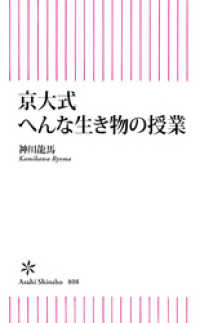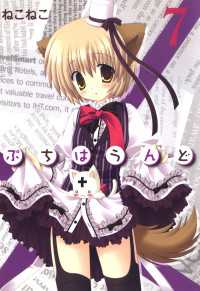- ホーム
- > 洋書
- > 英文書
- > Politics / International Relations
Full Description
In When Rebels Win, Kai M. Thaler explores why victorious rebel groups govern in strikingly different ways.
Many assume civil wars destroy state capacity. In the Democratic Republic of Congo and Libya, for instance, victorious rebels perpetuated state weakness. Yet elsewhere, like in China and Rwanda, they built strong, capable states.
Kai M. Thaler argues that, to explain post-victory governance, we must look at rebel group ideologies: the ideas and goals around which a group is formed. Where a group's ideology falls along two key dimensions—programmatic versus opportunistic, inclusive versus exclusive—influences how it governs. Programmatic-inclusive groups seek to reach across territory and work with populations to implement goals, building the state to try to transform society. Opportunistic-exclusive groups, by contrast, prioritize personalized power and private wealth, neglecting statebuilding.
With rich evidence from Africa, Latin America, and Asia, When Rebels Win rethinks accounts of rebel behavior and post-war governance emphasizing factors such as resource availability or international intervention. Wartime rebel ideology, Thaler demonstrates, is not just "cheap talk"—and civil war can, counterintuitively, lead to stronger states.
-

- 電子書籍
- GO WILD~獣人の恋は野性的~【タ…
-

- 電子書籍
- 京大式 へんな生き物の授業 朝日新書
-

- 電子書籍
- ぷちはうんど(7) 月刊コミックブレイド
-

- 電子書籍
- 九十九神曼荼羅シリーズ デリヘル8 身…




